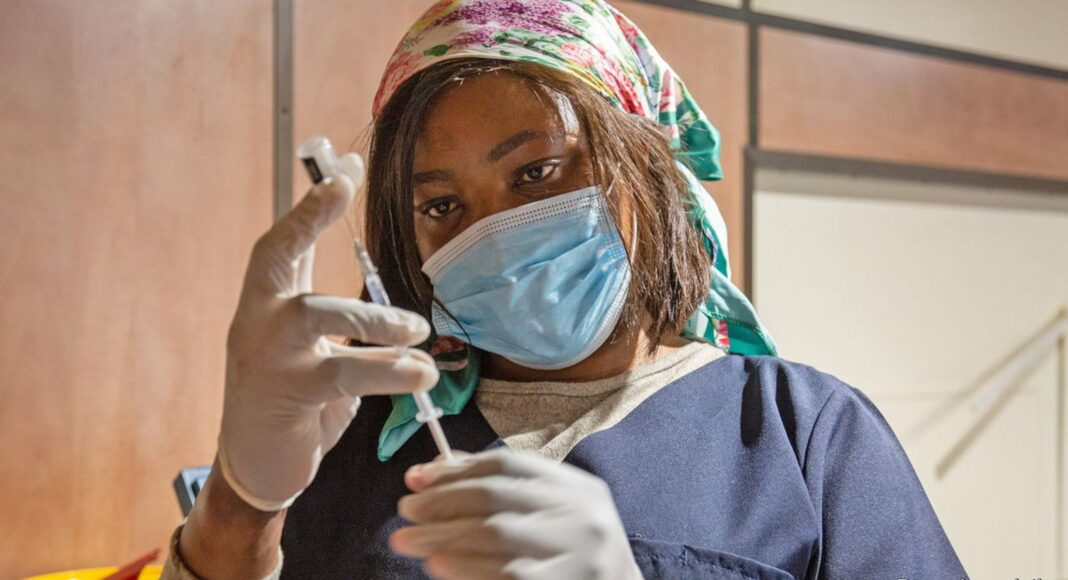Nov 30th 2021
YOU HAVE heard it many times during the pandemic: nobody is safe until everyone is safe. Large unvaccinated populations in poor countries will contract co-19. The virus will inevitably go on to mutate and spread back into the rich world. The rich world should therefore supply vaccines to poor countries, lest they become breeding-grounds for dangerous new variants.
On the face of it, the discovery of the Omicron variant in South Africa earlier this month is proof that those arguments were right. Only 23% of South Africans older than 12 are fully vaccinated. In neighbouring Botswana, one of the many countries where Omicron could have originated, the figure is 18%. In sub-Saharan Africa 116m doses of vaccine have been administered, compared with 611m in the European Union, which has a population less than half the size. The moral is clear: if Omicron turns out to be lethal, the rich world will be punished for its selfishness.
In fact Omicron illustrates how dubious this claim is. By sequencing the genomes of variants of SARS-CoV-2, the virus that causes co, scientists can build an ancestral tree, called a cladogram, which traces the accumulation of mutations to the original coronavirus first identified in Wuhan at the end of 2019 (see chart). Trevor Bedford, a virologist at the Fred Hutchinson Cancer Research Center in Seattle, has shown that Omicron branched off early in 2020, before Delta came on the scene. Since then it has been undetected and, until now, did not spread.
There are three possible explanations for this. The virus that became Omicron may have been contained in an isolated population that recently re-established contact with the outside world. It may have jumped into an animal and back out again. Or, most likely, it lived for a long time in the body of someone who was immuno-compromised, where it had time to accumulate large collections of mutations, some of which are good at escaping antibodies, locking onto human cells and injecting the viral genome into them.
All these explanations cast a shadow over the nobody safe/everyone safe maxim. To see why, consider that co is on its way to becoming an endemic disease. Hesitation means that countries can never vaccinate their entire populations, sometimes by a large margin. Even people protected by vaccination or prior infection can be susceptible to co—thankfully, their cases are usually mild. Some of them can pass on the virus.
The upshot is that, as the disease continues to circulate, everyone on Earth will sooner or later be exposed to co and not just once, but often. One thing you can be sure of is that, given enough time, co will reach Omega. That is because there will always be isolated populations. The virus will occasionally leap into animals. People with weak immune systems will be infected.
Vaccination may lower the frequency of these events. How much is unclear, but the EU has fully vaccinated 79% of over-12s and cases are nevertheless running at 2.5m a week. By contrast, South Africa has a total of 3m recorded cases in the entire pandemic. Although that is certainly a large underestimate, a lot of virus is circulating in the EU—and mutating.
You can see why people latch on to the nobody safe/everyone safe idea. They want vaccines to be widely available, but they fear that calls for altruism will fall on deaf ears in rich countries. Hence they make the case for “vaccine equity” using an appeal to self-interest.
Yet, however well-intentioned, confused arguments can end up seeming manipulative and sanctimonious, weakening the very cause they are designed to support. The best argument for why the rich world should share its vaccines is simpler and more powerful. Vaccines cost a few dollars. They save lives. They are becoming plentiful and will soon be in surplus. The rich world should supply them to the poor world because it is the right thing to do.
To read more coverage of the Omicron variant, visit our collection of recent stories.



